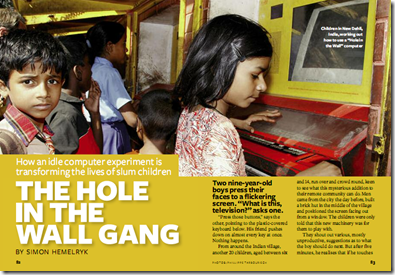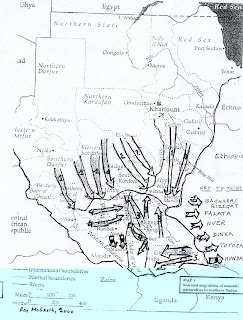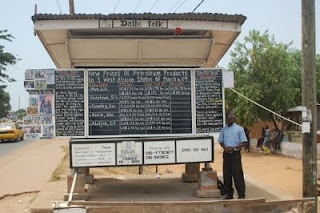Everyone seems to be blogging about using night-lights to measure GDP (
Marginal Revolution, Brad De Long’s blog, the Economist and WSJ blogs, and even
here). It does sound uber-cool: Measuring GDP from Outer Space and has pretty pictures to go with it. But really, before we get too excited, here’s why it’s a dubious idea:
1. The major motivation of the underlying
paper is that African countries have bad GDP data. But here’s a thought: a lot of Sub-Saharan countries get a LOT of their GDP from minerals and oil. The minefields don’t really create much light (at least not as much as the oil’s worth!) and often most of this wealth does not trickle into local consumption. Think here of all the usual stuff on political economy of resource curse etc. etc. emember President Obiang from Tropical Gangsters still rules Equatorial Guinea…… So basically underestimation seems built-in
2. It’s true we don’t have city-level GDP data. Yeah but first what you’re measuring is not production but expenditure (which is fine since that’s a perfectly valid way to get at GDP). But if you really want expenditure why don’t you just do a usual LSMS-type budget survey in the cities…? Far cheaper than usual African fieldwork (no rural logistics involved!) and guess what, we already know a lot about how to do them properly!
3. But the biggest problem is do we really know what it’s measuring? Does a low GDP estimate from night-lights, especially in Africa, just show a break-down or inadequacy of public provision, the usual way we get electricity???. Just look at Juba, would you? No city power to speak of (most areas of the town don’t even have connections) and generators are way more expensive, both as a fixed cost and to run, than a usual light connection. Of course, you’d see fewer lights…. And its not just the difference caused by the value of electricity !
4. How are lights and GDP related? Even the paper’s evidence shows there just isn’t a one-to-one relationship between growth in GDP and growth in night lights… Read this: In Hungary, Poland and Romania, where incomes rose by 41%, 56%, and 23%, the respective rises in lights were 46%, 80%, and 112%. The relationship doesn’t even seem STABLE!
5. And for the parting argument: Aren’t two error-prone measures better than one? Well, not if the measurement error in the second measure is just far worse than the first one (even if we did know what we were measuring with lights!).Keep everyone guessing which is the ‘right’ number! If you really want more measures, there are other options to choose from: smaller sample surveys possibly? You want local level estimates - how about some small area estimation stuff? Seriously there is enough to complain on the Penn World Tables and GDP estimates: Don’t make it worse!
P.S. This is not your usual correspondent. I’m his usual skeptical audience over beer most days…. Just decided to make the most of his absence from Juba
P.P.S. Lee, before you get to it, measuring population by huts where a Census exists is ALSO a bad idea! And this has nothing to with my love for my day job!!!





